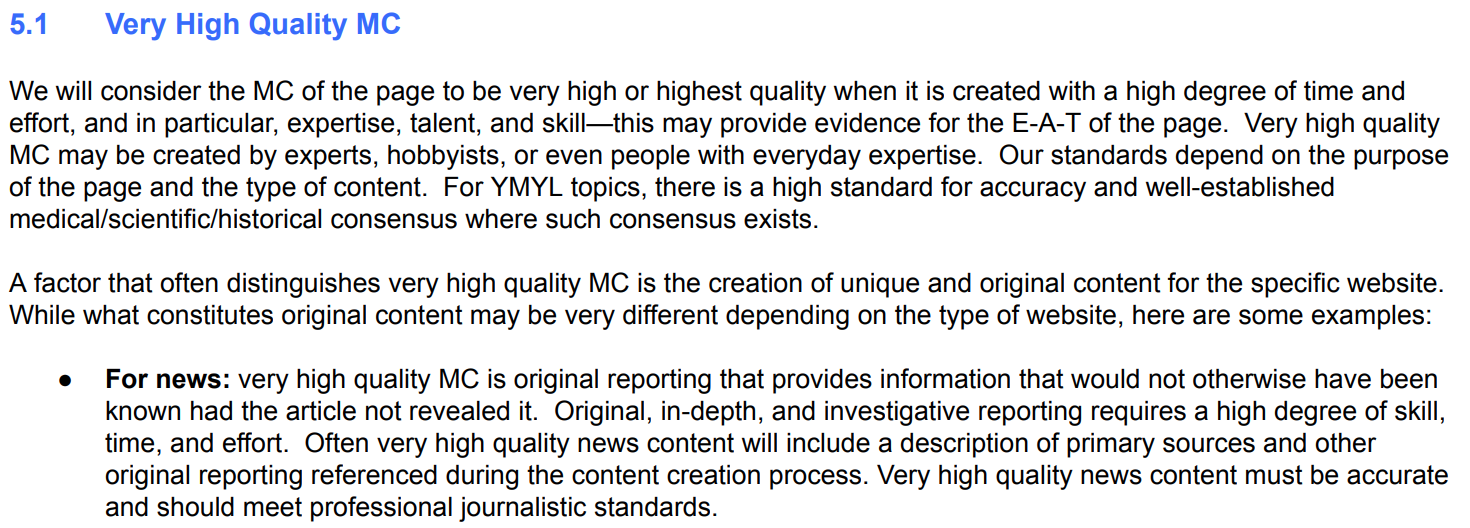
In an effort to put original reporting in front of users, Google’s VP of news Richard Gingras announced Thursday that the company has changed its global search algorithm to “highlight articles that we identify as significant original reporting,” and to keep such articles in top positions for longer.
After weeks of reporting, a journalist breaks a story. Moments later, aggregators scoop it up and get as much (or more traffic) than the original. Google is changing this by highlighting original reporting. YES! https://t.co/rel5cgWryF
— ¯\_(ツ)_/¯ (@PranavDixit) September 12, 2019
About time. I remember meeting with Google 15 years ago on the late Time Inc.'s behalf to complain about how Google search could not distinguish copycat reporting from original work. Google Says a Change in Its Algorithm Will Highlight ‘Original Reporting’ https://t.co/xaVSV2U30N
— Ned Desmond (@neddesmond) September 12, 2019
A suggestion given to them about 6 years ago and then every year since at Newsgeist. Who knew journalists could be right about such things…? https://t.co/cZGmsidvCW
— emily bell (@emilybell) September 12, 2019
The change is available in Google search now and will roll out to Google News and Google Discover shortly, Search Engine Land reported.
Google doesn’t venture to define exactly what original reporting is, saying vaguely, “There is no absolute definition of original reporting, nor is there an absolute standard for establishing how original a given article is. It can mean different things to different newsrooms and publishers at different times, so our efforts will constantly evolve as we work to understand the life cycle of a story.”
These “efforts” do include actual humans making judgments: The company noted that it has “more than 10,000 raters around the world” evaluating the Google algorithm:
Their feedback doesn’t change the ranking of the specific results they’re reviewing; instead it is used to evaluate and improve algorithms in a way that applies to all results. The principles that guide how they operate are mapped out in our search rater guidelines, a public document that allows raters to better understand and assess the unique characteristics of content that appears in search results….
We’ve just introduced a change to help us gather new feedback so that our automated ranking systems can better surface original content. To illustrate the update, in section 5.1 of the guidelines, we instruct raters to use the highest rating, “very high quality,” for original news reporting “that provides information that would not otherwise have been known had the article not revealed it. Original, in-depth, and investigative reporting requires a high degree of skill, time, and effort.
In addition to recognizing individual instances of original reporting at the page level, we also ask raters to consider the publisher’s overall reputation for original reporting. That update in section 2.6.1 reads: “Many other kinds of websites have reputations as well. For example, you might find that a newspaper (with an associated website) has won journalistic awards. Prestigious awards, such as the Pulitzer Prize award, or a history of high quality original reporting are strong evidence of positive reputation.”


This is welcome, but I wonder if it could backfire. It naturally favors the biggest outlets with investigative and large news teams. Might it worsen the economic imbalance between national and local/community/specialist media? https://t.co/qgHO03y8TD
— Gideon Lichfield (@glichfield) September 12, 2019
Google to local news outlets: "You'll be fine as long as catastrophic weather decimates your cities and states." https://t.co/tYJtDE93Mc pic.twitter.com/AIqd4nnvUv
— Brian Barrett (@brbarrett) September 12, 2019